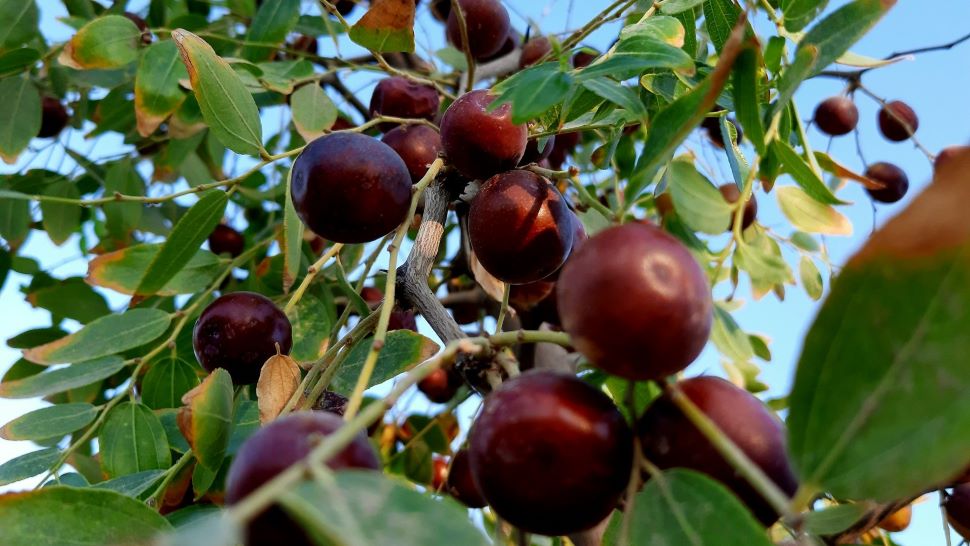Bratislav Aleksić, a professor of fruit growing and viticulture and an expert in ink painting, brought to Zrenjanin seedlings of rare fruit species from his native region, including šumatovka, Japanese kaki apple and Chinese date (jujube). The students of the Agricultural School in Zrenjanin grow these species as part of practical classes, while Professor Aleksić uses his long experience to teach them about the specifics of each of these fruit species.
Šumatovka, which comes from the village of Rujišnik near Trstenik, is known for its resistance to diseases, which makes it suitable for cultivation without spraying. This apple has a sour-sweet taste and is extremely well stored during the winter, even four to five months, and can be used for the production of brandy and juices. Its disadvantage is that it gives birth every other year, and when it rebirths, the fruit becomes smaller, weighing about one hundred grams on average. Aleksić grafted šumatovka on a medium-rich substrate, which enables stability and adaptation to different types of soil.
List of fruit species
The Japanese persimmon apple is another precious fruit that Aleksić presented to the students in Zrenjanin. This type of apple can be found in many households in Trstenik. It is known for its medicinal properties and resistance to diseases, while it is in high demand on the markets in Serbia due to its quality and price. Although it thrives well in our climate, this apple is sensitive to low temperatures below minus sixteen degrees. For cultivation, it is recommended to shape the tree into a pyramidal crown, which helps to reduce the weight on the branches and prevent breakage. The branches of this apple are quite fragile, so when it regenerates, they can easily break under the weight of the fruit.

Aleksić also brought to Zrenjanin a seedling of a Chinese date or jujube, whose fruit is characterized by a pleasant taste and resilience. This fruit tree easily adapts to our climate and thrives without major problems. Aleksić believes that climate changes, which bring warmer temperatures, have made the area in Serbia suitable for growing these types of fruit. He believes that the spread of such species can be very useful for domestic agriculture because many of them are resistant to diseases and do not require intensive use of chemical means for protection.
He is grateful to the director of the Agricultural School in Zrenjanin for his support and vision to introduce new fruit species into local production. He believes that fruits such as kaki apple and šumatovka can contribute to the diversification of fruit production in Serbia. Fruit growers are provided with more resistant varieties that require less protection, and at the same time provide quality fruits suitable for fresh consumption and processing. Aleksić’s efforts and efforts in passing on knowledge to young generations show the value of preserving and improving local fruit-growing traditions through the introduction of new, adapted varieties.
Source: Good morning
Source: boljazemlja.com


